Global oil producer ExxonMobil and Finland’s Neste, producer of sustainable aviation fuel from waste residues, have partnered to provide commercial-scale distribution of SAF in France, in line with a 1% blending mandate which took effect in the country on 1 January. Through this deal, Exxon Mobil will distribute aviation fuel that includes a 30% of SAF produced by Neste from feedstock including used cooking oil and animal fat waste, reports Tony Harrington. The Exxon-Neste collaboration to provide “a continuous and scalable supply of SAF into France” is the latest in a series of initiatives taken in Europe to help meet escalating SAF blending requirements. Among other measures, Latvia’s Air Baltic recently operated a flight from Helsinki to Riga using a 37% blend of Neste SAF. The airline also revealed that its use of SAF increased by 20% in 2021 and announced plans to further boost its use of sustainable fuels in 2022.
Charles Amyot, ExxonMobil’s lead country manager in France, said that through the new collaboration with Neste to provide SAF at major airports in France, the oil company was “delivering solutions that enable customers to meet product performance requirements while reducing greenhouse gas emissions.” Jonathan Wood, Neste’s VP Europe, Renewable Aviation, said the company’s drop-in SAF was “readily available” to the aviation industry as it continued to decarbonise operations. “This supply agreement is an important milestone for Neste, and we are excited to support ExxonMobil.”
France is the third European nation to introduce a SAF blending mandate. Beyond the new 1% SAF requirement for all commercial flights from French airports, the country has legislated an increase to 2% by 2025 and 5% by 2030, as part of the EU’s European Green Deal.
Neste commented: “Sustainable aviation fuel is recognised globally as the most feasible option to significantly reduce aviation emissions in the near term. Through SAF mandates and partnerships like this, we will together drive the increased use of SAF and help build momentum in tackling aviation’s emission reduction challenge.”
From a 2021 capacity to produce 100,000 tonnes of SAF from 10 types of waste and residue raw materials, Neste plans to increase its global output 15-fold to around 1.5 million tonnes by 2023 through expansion of its Singapore and Rotterdam refineries. Singapore is expected to produce up to 1 million tonnes of SAF by the first quarter of 2023, while up 500,00 tonnes more will come from Rotterdam.
The ExxonMobil and Neste announcement said the companies would supply SAF to “the largest airports in France” but did not specify which gateways it would support or where the SAF would be produced.
Separately, Groupe ADP, which operates airports including the country’s two largest hubs, Paris Charles De Gaulle and Orly, has announced that it is a stakeholder in six SAF development projects in France. “The goal is to develop, by 2025 at the latest, sustainable fuel production in France capable of serving Paris airports,” said Amélie Lummaux, Chief Officer of Sustainable Development and Public Affairs at Groupe ADP.
In May 2021, Air France, in partnership with oil company Total, Airbus and Groupe ADP, operated the first long haul-flight using French-produced SAF, an Airbus A350 service from Charles De Gaulle Airport to Montreal, Canada. The 16% SAF blend, produced from cooking oil, was manufactured by Total at its Le Mède biorefinery in southern France, and its Oudalle facility, near Le Havre. By 2024, Total has pledged to produce SAF at its Grandpuits zero crude complex near Paris.
The recent Air Baltic SAF flight, on the 380-kilometre sector between Helsinki and Riga, was operated with an Airbus A220-300, which incorporated a 37% blend of SAF produced from animal fats and used cooking oils – the largest volume of sustainable fuel the airline has used on any flight, and just shy of the 38% EU aviation blending mandate set for 2045. The airline, which operates a single-type fleet of 32 A220-300s between the Baltic region and 70 destinations in Europe, the Middle East and the CIS, has declared its intention to become a sustainability leader in European aviation, with a strategy heavily based on the use of this highly-efficient aircraft type and increasing use of SAFs. Air Baltic is the largest operator of the A220-300 and has firm orders for 18 more, plus up to 30 options or purchase rights.
Also in Europe, and in partnership with Malaysia’s national energy company, Petronas, Malaysia Airlines used a 38% blend of Neste SAF on its recent first flight with sustainable aviation fuel, an Airbus A330 service from Amsterdam to Kuala Lumpur (see article).


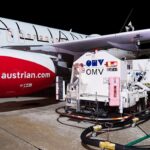

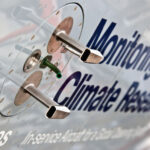


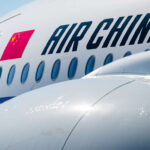
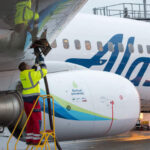
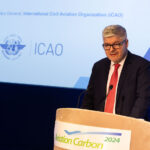

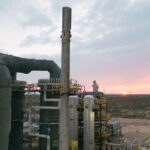

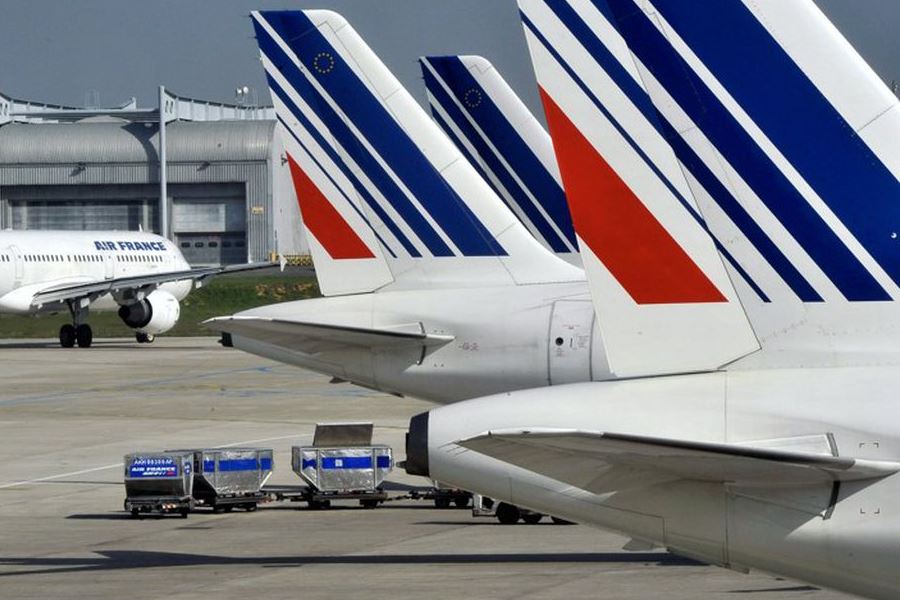

More News & Features
Progress on decarbonising the airline sector has been slow this year, says IATA chief
EASA releases status report on Europe’s SAF production and readiness to meet blending targets
New study highlights differing strategies and barriers to decarbonising aviation in UK and Europe
New partnerships formed to drive e-SAF production in Nordic markets
IAG continues to go big on e-SAF as it inks 10-year offtake agreement with Infinium
US on the pathway to achieving its 2030 SAF Grand Challenge target, says DOE report